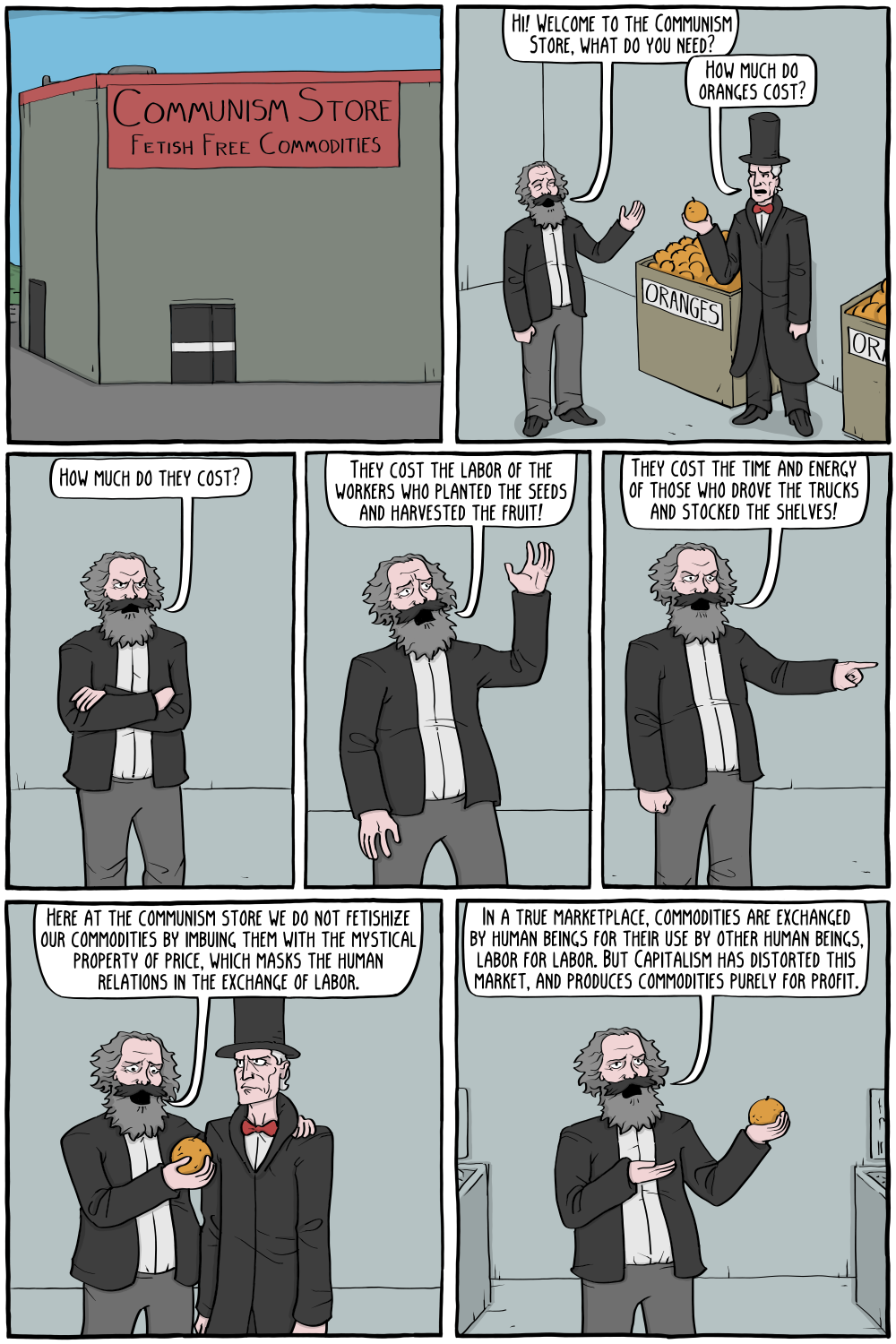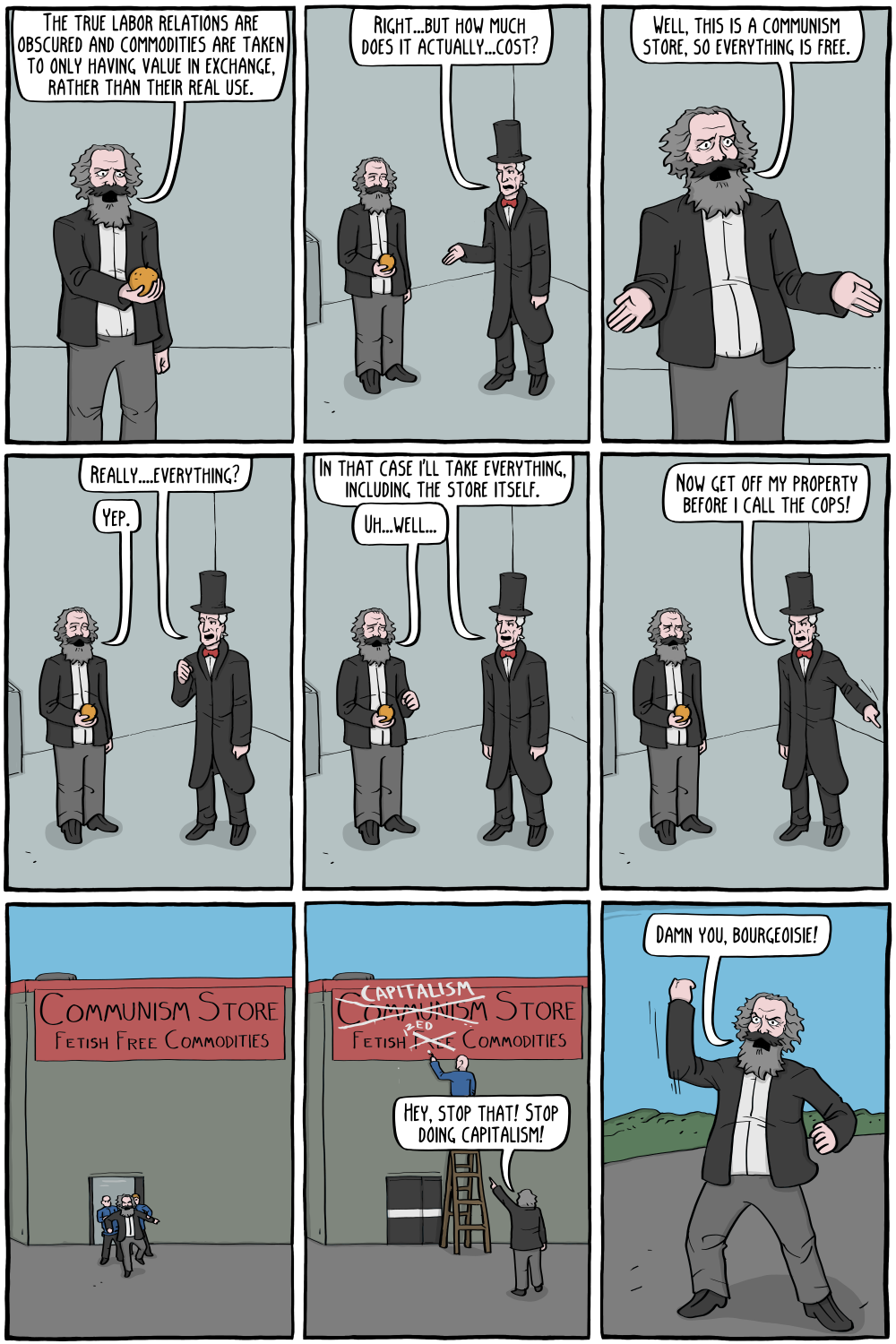

Karl Marx's concept of commodity fetishism (fetish here meaning "to imbue with mystical properties", it has nothing to do with sexual fetishes), goods sold in the marketplace under capitalism obscure the relationship between workers who create them for their use value. Despite believing that communism would ultimately do away with marketplaces, Marx actually loved the ideal of the marketplace as described by capitalist economists, wherein workers produce various things that are useful to other people and exchange them using money as a mediator, organically organizing labor for everyone's benefit. In theory, the baker would produce bread for everyone and the carpenter would build things, and the amount of labor put in would indicate the price of the good (this is called the labor theory of value, which he got from Adam Smith). For example, if people noticed that carpenters were making twice as much money as bakers, more people would become carpenters, diluting the market and eventually the amount of labor and money earned would equalize over time (it turns out some prices can't be explained this way, but it does explain a lot). The problem was, this marketplace doesn't exist, because there is a third person: the capitalist. Not only that, but he owns and controls everyone's labor. So commodities actually end up not being produced for use by other people at all and exchanged in a fair marketplace, they are produced solely for the capitalist's profit, and this only loosely corresponds to the wants and desires of the consumers. For example, supermarkets will throw away food that is expired, and actively guard the discarded food to prevent people from eating it (we saw this just recently in Portland during a Blizzard, where the police were preventing people from "looting" food that had been thrown away). This is completely irrational behavior, because the entire purpose of growing food was for human consumption. So why do they do it? Because it is "rational" for maximizing their profits: it keeps the price higher for the goods on the shelf (it's also irrational to want higher prices, rationally we should all want cheaper goods, but again the capitalist's interest is directly against that of society here). The market is distorted, and the goods themselves become distorted because capitalists (and even consumers in the end) only see the goods as having exchange value, in other words, I can exchange 80 oranges for 1 chair. Lost in all this, however, is why the oranges and chairs were produced to begin with. The capitalists themselves don't even care why they were produced, they only care if they will turn a profit, so the goods and services become mere abstractions to them. In this way, the rational market, which organizes specialized labor in a way to exchange it for other specialized labor to satisfy all of our needs can never, and will never exist under capitalism. At least according to Marx.
Permanent Link to this Comic: https://existentialcomics.com/comic/383
Support the comic on Patreon!










